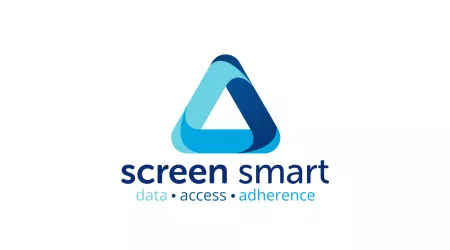
Colorectal cancer screenings should start at age 45: Here’s what that means

The United States Preventive Services Task Force (USPSTF) has lowered the colorectal cancer screening age to 45. This means all people at average risk should start screening for colorectal cancer at age 45. People at higher risk may need to be screened earlier according to their risk factors. Colorectal cancer is extremely common in the United States, and these new screening guidelines will save lives.
In his statement on the guidelines, Colorectal Cancer Alliance CEO Michael Sapienza said:
“This change will save thousands of lives. Lives of people who are just reaching the pinnacle of their careers, families, and contributions to society. These are, in many cases, moms and dads of young children. The impact cannot be overstated.”
What do the new guidelines mean for colorectal cancer prevention?
The new colorectal cancer screening guidelines will increase access to colorectal cancer screenings. More than 20 million additional people will be able to get a preventive colorectal cancer screening, most at no cost.
The Affordable Care Act requires that Medicare, Medicaid, and private insurance plans cover preventive screenings. For average-risk patients age 45 and older, this means no copay or out-of-pocket costs for routine screenings.
Why are the new colorectal cancer screening guidelines important?
With the exception of skin cancers, colorectal cancer is the third most diagnosed cancer in both men and women. It’s also the second leading cause of cancer death of men and women combined. The American Cancer Society estimates that in 2021 there will be 104,270 new cases of colon cancer and 45,230 new cases of rectal cancer. Combined, there will be 52,980 deaths from colorectal cancer this year.
With more people screened earlier, we can prevent more cancer and save lives. Screening helps to find growths (polyps) inside the colon. Most colorectal cancers begin as a small non-cancerous polyp. These growths can take up to 10-15 years to become cancer. Not all polyps will become colorectal cancer, but many do.
The good news is that during colonoscopy, polyps can be found and removed. This prevents a possible cancer diagnosis.
Colorectal cancers often don’t produce symptoms until later stages, so on-time screening is essential. If you do have colorectal cancer, doctors can catch it earlier with screening. Treatments work best when the cancer is "localized," which means it has not spread outside the colon or rectum. Localized cancers have a 91% five-year survival rate. As the cancer spreads beyond the colon or rectum, survival rates decline.
Risk for colorectal cancer increases with age, but the average age of diagnosis is dropping. However, the youngest people eligible for colorectal cancer screening often wait or are not referred to screening until later. A recent study found that the healthiest patients actually are least likely to get screened for colorectal cancer.
Why are new colorectal cancer screening guidelines coming now?
Colorectal cancer is often considered something older people get. In truth, colorectal cancer is affecting more and more young adults. Colorectal cancer rates for people under age 50 have increased 2% each year since 1990. Researchers aren’t sure why.
Also upsetting is young people get advanced cancer more often than the older people. Forty percent of people who die from colorectal cancer could have survived if they were diagnosed with stage III cancers instead of stage IV. This is largely due to delays in receiving a diagnosis.
About 75% of young-onset cases are diagnosed between ages 40-49. A recent study showed a steep increase in colorectal cancer between ages 49 and 50. In 50-year-olds, most of these cases were diagnosed at a late stage. This suggests cancer was developing undetected for several years prior to diagnosis at age 50.
Should the screening age be even lower?
It’s an important question. We know colorectal cancer diagnoses and deaths have a greater impact in Black, Indigenous and people of color communities. Often, BIPOC people run into barriers to screening that include finding and accessing high-quality care. The loss of actor Chadwick Boseman at age 43 shows that reducing the age of first screening to 45 will not reach everyone. But it is a start.
Research to understand differences in screening, diagnosis, and treatment in the BIPOC community is needed. Research can inform whether screening should start earlier for some groups. Also, research into young-onset colorectal cancer can help begin to explain why we have seen increases in cases since 1990.
What do average risk and high risk mean?
Being at average risk for colorectal cancer is more about risk factors that are missing. People at average risk are 45 or older and have:
- No symptoms of colon or rectal cancer like bleeding when you have a bowel movement or persistent belly pain.
- No family members who have been diagnosed with colorectal cancer or a hereditary colon or rectal cancer syndrome like Lynch Syndrome or Familial Adenomatous Polyposis (FAP). This means no siblings, parents, or children have been diagnosed. If a person’s extended family has any of these, it is worth mentioning to your doctor but may not affect a person’s risk.
People with family history of cancer or certain genetic factors are considered high risk. As many as 1 in 3 colorectal cancer patients has a family history of colorectal cancer. They often don’t know about it though. Because family history is a very strong indicator of increased risk for getting this disease, it’s important to talk to family members. Genetic factors also increase lifetime risk of being diagnosed with colorectal cancer.
When and how should I get screened for colorectal cancer?
You can use our screening quiz to learn which screening test is best for you. The recommendation is based on your personal risk. It takes just a few minutes. Take the quiz to learn your options so you can get screened on time, every time.
Take the CRC screening quiz here.
The best screening test is the one that gets done, so know your options and act now.
I have another question. Who can I contact?
Contact the Colorectal Cancer Alliance’s Patient & Family Support team. They can provide support on our toll-free Helpline at (877) 422-2030 or via email at care@ccalliance.org.
Top resources

National Cancer Prevention Month: Majority View Encouraging Screening as an Act of Love
Americans increasingly view colorectal cancer screening encouragement as an act of love, with new survey data showing rising openness about lifesaving prevention.

Katie Couric Joins the Colorectal Cancer Alliance To ‘LEAD FROM BEHIND’
Katie Couric joins the Colorectal Cancer Alliance and Ryan Reynolds’ Maximum Effort to expand LEAD FROM BEHIND, a star-powered campaign breaking stigma and urging lifesaving colon cancer screening. Colon cancer is the preventable cancer.

20+ Colorectal Cancer Alliance Screen Smart Partners Encourage Secretary Kennedy to Uphold USPSTF Goal to Improve Health
The Colorectal Cancer Alliance and more than 20 Screen Smart partners urge HHS Secretary Robert F. Kennedy Jr. to protect USPSTF’s evidence-based process and no-cost preventive screenings like colorectal cancer screening, which save lives and improve national health.





